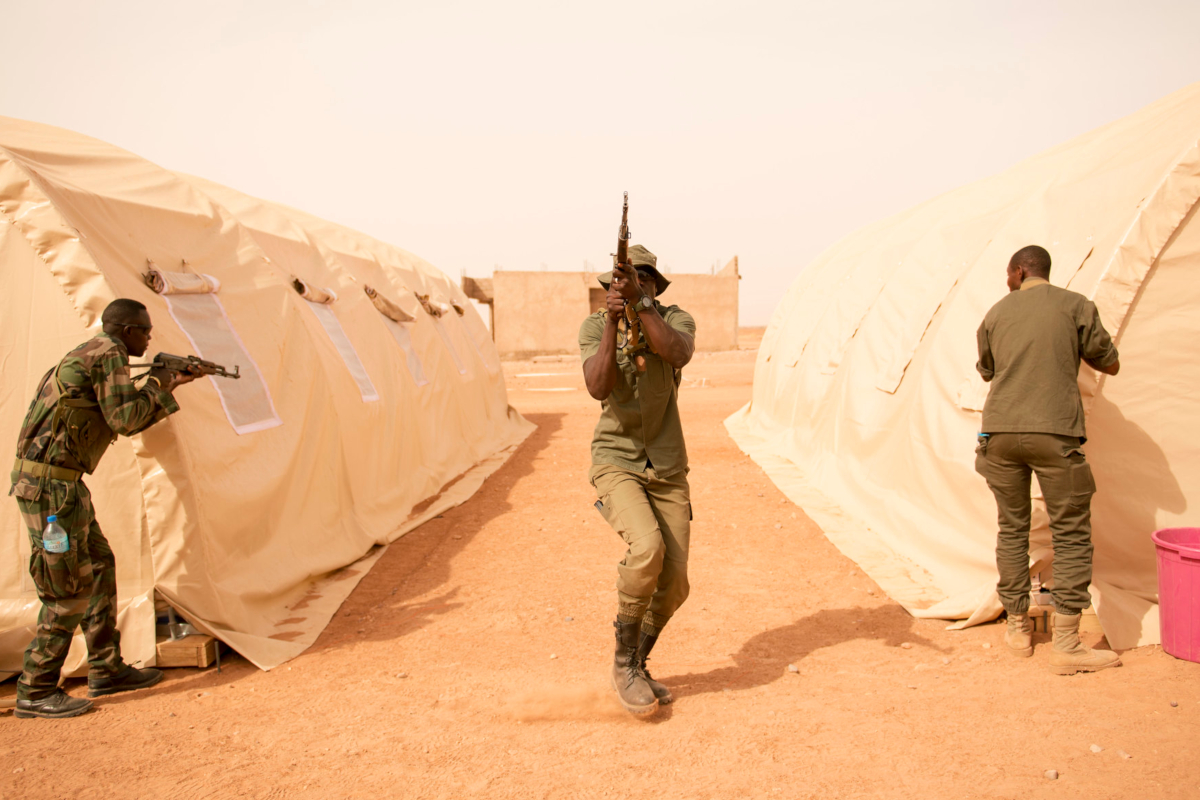€72 million for EU security and immigration mission in Niger
Topic
Country/Region
14 September 2022
The Council of the EU is set to authorise a fresh budget of €72 million for the EU's security and immigration mission in Niger, which is tasked with aiding "Nigerien security actors in the fight against terrorism and organised crime" and the development of "policies, techniques and procedures to effectively control and fight immigration."
Support our work: become a Friend of Statewatch from as little as £1/€1 per month.

Establishment of the EU’s CSDP mission in Niger was first approved in July 2012 with a capacity-building aim to assist Nigerien security actors to fight terrorism and organised crime. In May 2019, a new Decision instructed the mission to contribute to ‘regionalising’ CSDP actions in the Sahel, “without prejudice to its core mandate in Niger”.
The mission’s mandate was repeatedly extended, the last time (in 2020) until 30 September 2022. A strategic review has led the Council of the EU’s Political and Security Committee to recommend a further two-year extension (pdf), for which €72 million will be made available.
Following a submission to the Council to adopt a an amending decision for the mission on 8 July and agreement in RELEX (the Foreign Relations Counsellors Working Party) on a draft decision and budgetary impact statement on 14 July, COREPER (the Committee of Permanent Representatives of member states to the EU) was asked on 1 September to confirm the agreement and endorse the budgetary impact statement.
The funds allocated will be implemented by the EUCAP Sahel Niger mission under an indirect management regime. In line with the EU’s strategy for Security and Development in the Sahel, the mission aims to enable Nigerien authorities to develop strategic frameworks and “further operationalise existing strategies”.
The mission should contribute to developing “an integrated, multidisciplinary, coherent, sustainable and human-rights approach” among Nigerien security actors in the fight against organised crime and terrorism, according to the new Decision. Assistance will also be provided to central and local authorities and security bodies to develop “policies, techniques and procedures to effectively control and fight irregular migration”. Just over €144,000 is earmarked over two years for a project entitled “migration”.
EUCAP Sahel Niger does not have executive powers but is tasked with:
- improving cooperation between Nigerien security actors;
- strengthening security forces’ capacity in the fights against terrorism and organised crime, through advice, training and mentoring activities;
- “assist[ing] the Niger security forces in developing the procedures and techniques to effectively control and fight irregular migration and reduce the level of associated crime... in support of the Union’s objectives on migration”; and
- “facilitat[ing] regional and international coordination in the fight against terrorism, organised crime and irregular migration.”
It should also assist the ‘regionalisation’ of CSDP actions in the Sahel by contributing to the improvement of interoperability and coordination between the internal security forces of G5 Sahel countries (Burkina Faso, Chad, Mali, Mauritania, and Niger), supporting cross-border cooperation and regional cooperation structures and improving national capabilities. The budget sets aside nearly €2.3 million for a project on “interoperability”, the mostly costly of all the projects listed.
Regarding further activities to promote regionalisation, reference is made to the “joint civil-military Concept of Operations on Regionalisation of CSDP action in the Sahel”. EUCAP Sahel Niger may also provide training, advice and support to Sahel countries (on request, if the security situation allows it), with support as a facilitator from the he Regional Advisory and Coordination Cell established within EUCAP Sahel Mali.
The EU’s Political and Security Committee shall be informed of any new activity conducted in a new G5 Sahel country. The €72 million earmarked for these activities are divided into two annual instalments, from 1 October 2022 to 30 September 2023 and from 1 October 2023 to 30 September 2024. EU member states will contribute in kind by seconding 55 staff members and covering their costs and expenses.
EUCAP Sahel projects and budgets 2022-24
|
Project |
Budget 2022-24 (€) |
|
Small scale projects of Monitoring pillar [sic] |
76,015 |
|
Interoperability |
2,298,336 |
|
Technical competencies |
1,502,404 |
|
Migration |
144,264 |
|
Projects carried forward from previous mandate |
1,000,000 |
|
Gender and Human Rights: campaigns, workshops and study trips |
373,150 |
|
Mission specific - Projets U4 Strategie |
2,177,185 |
|
Mission specific - Projets Antenne Agadez |
1,028,646 |
Source
- Council Decision on the European Union CSDP mission in Niger (EUCAP Sahel Niger) (Council doc. 11200/22, LIMITE, 1 September 2022, pdf)
Further reading
- 18 August 2022: Frontex celebrates "expanding footprint" beyond the EU in report on third country cooperation
- 21 July 2022: EU: Tracking the Pact: New “operational partnerships” with Morocco and Niger
- 10 March 2022: Frontex to boost border control efforts in Niger, Algeria and Libya
Image: US Africa Command, CC BY 2.0
Our work is only possible with your support.
Become a Friend of Statewatch from as little as £1/€1 per month.
Spotted an error? If you've spotted a problem with this page, just click once to let us know.

